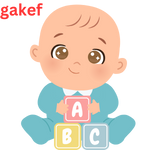Parents and educators are increasingly recognizing the importance of learning through play. This approach enhances children’s cognitive, social, and emotional development while fostering a love of learning. Amidst this growing awareness, a unique market for handmade educational toys has emerged, offering a range of benefits that extend beyond the traditional toy store offerings.
Handmade toys are crafted with care and attention to detail, often using natural materials like wood, cotton, and wool. They are designed to be tactile and engaging, stimulating a child’s senses and encouraging them to explore and discover. Many of these toys are also designed to be open-ended, meaning they can be used in a variety of ways and do not have a predefined outcome or purpose. This open-endedness fosters creativity, allowing children to imagine, invent, and tell their own stories.
For example, a set of handmade wooden blocks can become anything from a towering castle to a complex marble run. A simple piece of cloth can transform into a superhero’s cape or a princess’ magical scarf. This flexibility in play allows children to develop their critical thinking and problem-solving skills while exploring their imaginations.
The benefits of these toys extend further. Often created by artisans, they support local businesses and communities, promoting sustainability and ethical production practices. The artisans behind these handmade creations often have a deep passion for educating and engaging children, resulting in toys that are not only fun but also genuinely educational.
Safety is also a key consideration. Handmade toys are often free from the harmful chemicals and toxins that may be present in mass-produced items. This gives parents peace of mind, knowing that their children are playing with toys that are safe and non-toxic.
In addition, the uniqueness of handmade toys offers children something truly special. Each toy has its own character and charm, often reflecting the culture and traditions of the place it was crafted. This adds a layer of richness and diversity to a child’s play experience, fostering an appreciation for different cultures and handcrafted traditions.
Recognizing the value of play in a child’s development, educators can utilize these toys as tools to enhance their teaching methods. Purposefully incorporating play into educational settings supports a number of key learning goals. Play invites children to explore complex concepts through hands-on experiences, fosters social skills and emotional intelligence as children collaborate and negotiate, and even encourages language development as they narrate their play experiences.
Ultimately, learning through play with unique handmade educational toys offers a holistic approach to a child’s development, combining fun, education, and cultural awareness in a way that supports their natural curiosity and imagination.
—
Looking for unique, handmade educational toys? Here are some artisans and small businesses to check out:
[Include a list of 5-10 businesses with a brief description of their products and a link to their website or online store. You can also include a sentence or two about the benefits of their toys.]
Wooden Story: Specializes in handcrafted wooden toys treated with natural beeswax and botanical oils. Their products are designed to stimulate children’s senses and are free from harmful chemicals. Shop their collection at [website URL].
Little Cotton Creations: Creates adorable soft toys and sensory blankets that are perfect for toddlers. Their products are made with organic cotton and dyed with natural pigments. Visit their online store at [website URL] for unique and safe toys.
… [continue with the list, providing a variety of options for readers to explore]
These businesses offer a wonderful range of handmade educational toys that are not only fun but also support a child’s development and learning through play.

